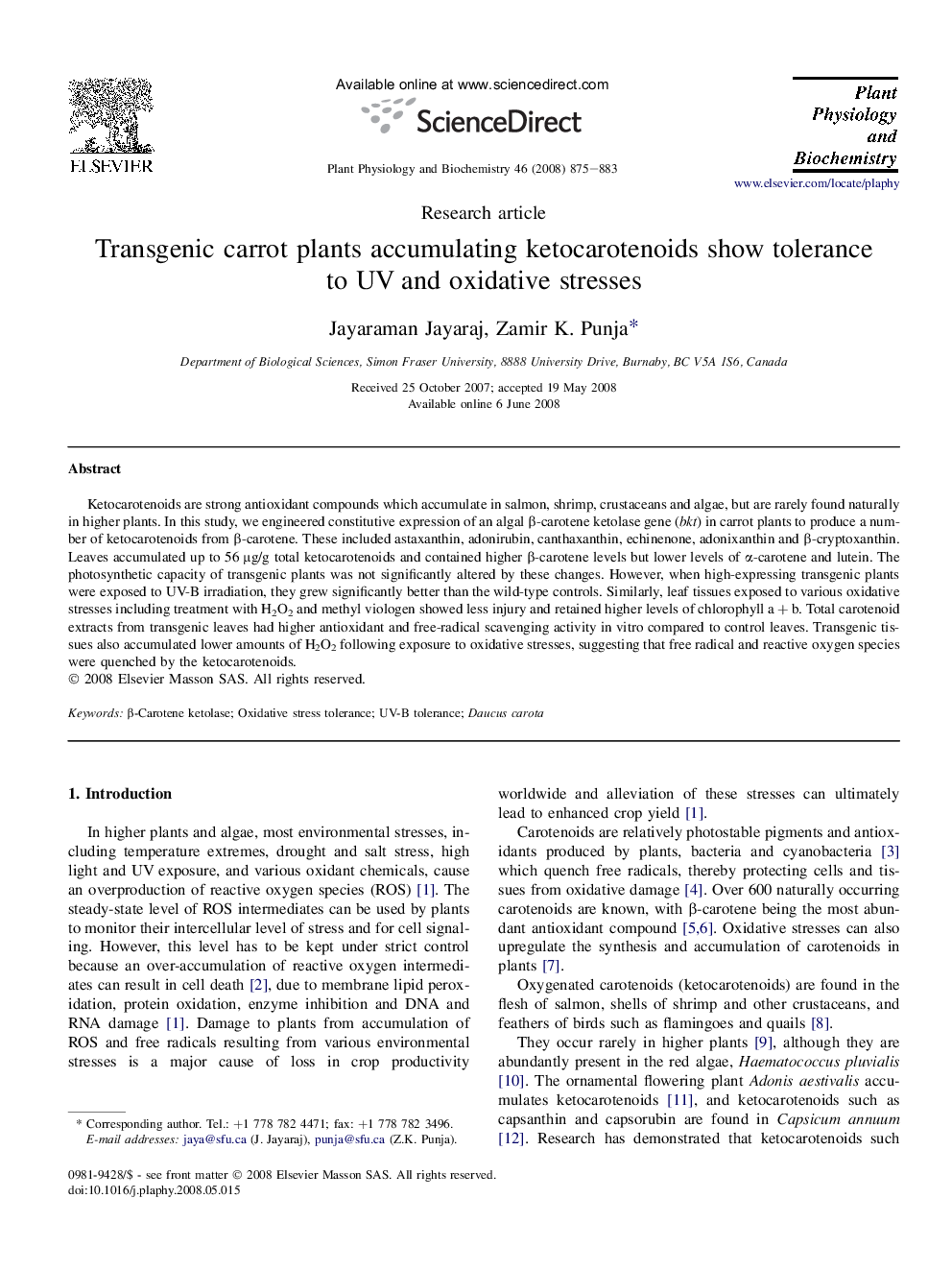| Article ID | Journal | Published Year | Pages | File Type |
|---|---|---|---|---|
| 2015454 | Plant Physiology and Biochemistry | 2008 | 9 Pages |
Ketocarotenoids are strong antioxidant compounds which accumulate in salmon, shrimp, crustaceans and algae, but are rarely found naturally in higher plants. In this study, we engineered constitutive expression of an algal β-carotene ketolase gene (bkt) in carrot plants to produce a number of ketocarotenoids from β-carotene. These included astaxanthin, adonirubin, canthaxanthin, echinenone, adonixanthin and β-cryptoxanthin. Leaves accumulated up to 56 μg/g total ketocarotenoids and contained higher β-carotene levels but lower levels of α-carotene and lutein. The photosynthetic capacity of transgenic plants was not significantly altered by these changes. However, when high-expressing transgenic plants were exposed to UV-B irradiation, they grew significantly better than the wild-type controls. Similarly, leaf tissues exposed to various oxidative stresses including treatment with H2O2 and methyl viologen showed less injury and retained higher levels of chlorophyll a + b. Total carotenoid extracts from transgenic leaves had higher antioxidant and free-radical scavenging activity in vitro compared to control leaves. Transgenic tissues also accumulated lower amounts of H2O2 following exposure to oxidative stresses, suggesting that free radical and reactive oxygen species were quenched by the ketocarotenoids.
